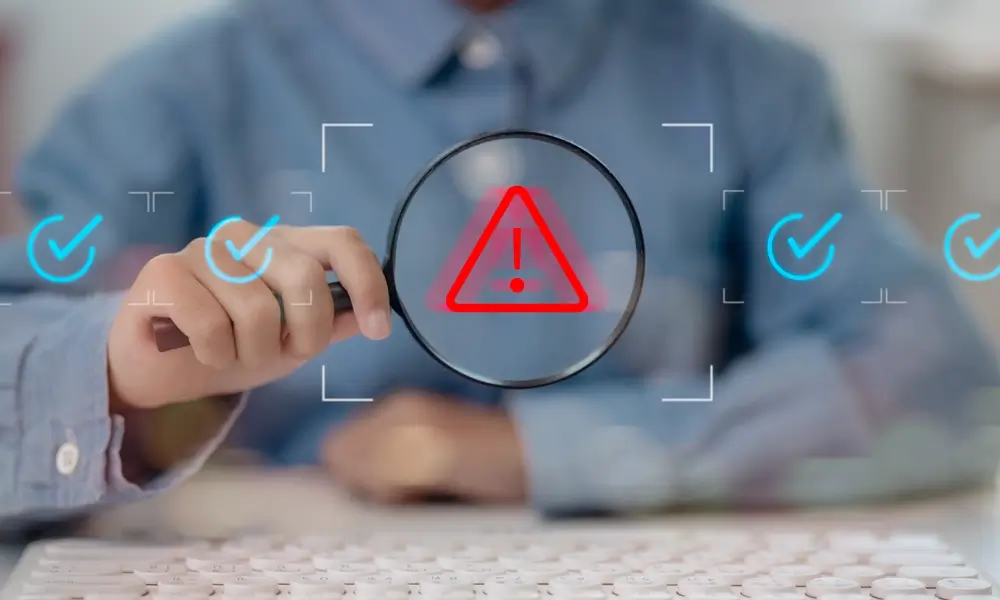Artificial Intelligence (AI) is redefining countless sectors, and auditing is one of the fields that most promises significant advances. With the increase in regulatory complexity and the amount of corporate data, AI emerges as a powerful solution to make audits more agile, accurate, and secure.

In 2025, AI is expected not only to assist with traditional auditing tasks, but also to profoundly transform the role of auditors, offering new analysis perspectives and reducing corporate risks.
Historically, auditing has relied on sampling and intensive manual analysis. However, with AI, audits are becoming much more efficient. Instead of auditors analyzing a small sample of transactions, AI algorithms can evaluate data in a massive and detailed way, allowing for the analysis of complete data sets. This increases accuracy and reduces the likelihood of errors or omissions.
Below are some ways in which AI promises to improve the auditing process:
- Repetitive Task Automation: AI is already helping to automate operational tasks, such as data validation and document conferencing, allowing auditors to focus more time on analyzing complex and higher-value issues.
- Fraud and Anomaly Detection: AI is able to identify patterns and deviations that may indicate fraud or irregularities. With machine learning algorithms, auditing tools can monitor transactions in real time, detect unusual patterns, and alert auditors to potential risks.
- Predictive Analysis and Strategic Insights: The predictive capacity of AI allows not only to detect errors, but also to anticipate where problems may arise in the future. Historical data analysis combined with forecasting models can help companies identify areas of vulnerability and make proactive decisions.
- Real-Time Compliance Check: By 2025, real-time regulatory compliance will be a reality for many companies. AI can continuously monitor a company's operations and compare with current regulations, automatically identifying violations or gaps.
With AI taking over part of the routine and analytical tasks, the role of auditors is changing from executor to strategist. Instead of spending time on operational tasks, auditors can focus on interpreting the results generated by AI algorithms, providing valuable insights for senior management and helping to drive decision-making.
Knowledge of AI and analytics tools will be a differential for auditors. Many auditors are already being trained in data science, machine learning, and predictive analysis to accompany this transformation. In addition, AI allows audits to be carried out in near real time, providing a continuous view of a company's financial and regulatory situation. Thus, instead of annual audits, many companies will be able to adopt continuous audits, with regular and more detailed reports.
Challenges and Ethical Considerations
While AI brings a number of benefits, there are also challenges that need to be considered:. For example, auditing requires precision and transparency, and some AI models, especially the most complex ones, such as deep neural networks, can act as “black boxes” and are difficult to interpret. The explicability of the results generated by AI is essential to ensure that auditors understand and trust the findings.
Already thinking about data security and privacy and with large volumes of data being processed, companies and auditors need to ensure that the data is protected against unauthorized access and leaks, especially sensitive financial data.
There are also challenges in cultural and organizational adaptation, as some organizations may still encounter resistance, either due to ignorance or lack of clarity about the role of AI in the auditing process.
Due to ethical implications, auditing also requires impartiality, but AI algorithms may be subject to biases. It's critical that auditors understand how algorithms make decisions and identify biases to ensure fair and accurate results.
Preparing for the Future: Strategies for Companies and Professionals
For companies and auditors to take advantage of the full potential of AI in auditing, some strategies stand out:
• Investment in AI and Training Tools: Adopting AI requires investments in technology and team empowerment. Data analysis, machine learning, and automation tools should be a priority, as should training in digital skills for auditors.
• Partnerships with AI and Compliance Specialists: Companies and auditing firms can benefit from partnering with AI specialists, who can help implement customized solutions and maintain regulatory compliance.
• Development of Data Governance and AI Policies: Companies need clear policies for the use of AI in audits. Data governance and guidelines on AI ethics help ensure that technology is used responsibly and effectively.
By 2025, Artificial Intelligence will be more than a tool. It will be a central component of auditing practice. The ability to analyze large volumes of data, predict trends, and identify anomalies in real time will not only make audits more accurate, but will also expand the strategic value that auditors can provide to organizations.
By preparing their teams and adopting an innovation-oriented culture, companies will be able to make the most of AI, transforming auditing into a continuous, agile and future-oriented process.
Contact our specialists, who work with integrated auditing, internal auditing, accounting, tax, corporate finance, financial advisory, risk advisory, technology, business consulting and training services, for more information, at www.taticca.com.br or e-mail taticca@taticca.com.br and learn more. Our company has certified methodologies for carrying out activities.





